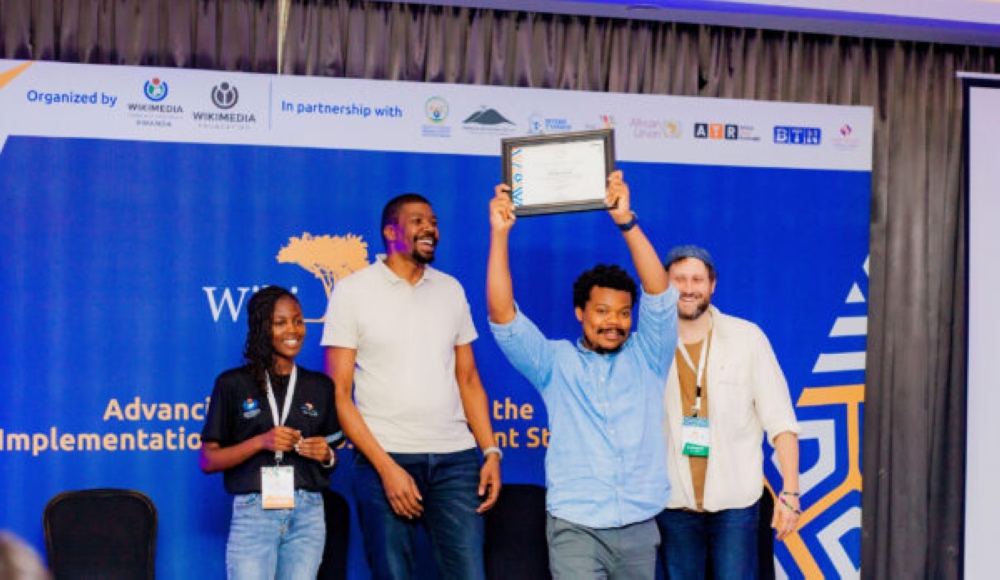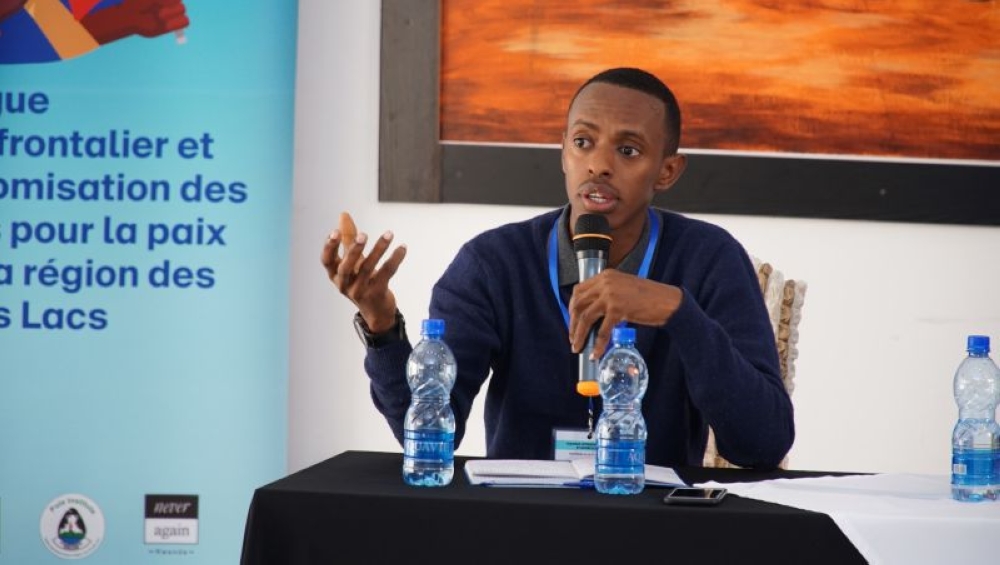

The accuracy of open-source information, especially on platforms like Wikipedia, varies. While Wikipedia is a resource, its open-edit model that allows existing data to be changed by anyone presents both strengths and weaknesses.
Open-Source Knowledge Rwanda (Wikimedia Rwanda) plays a crucial role in editing false and biased information, enhancing the reliability of content related to the country.
According to Spiceworks, a network for the information technology industry, an open-source platform is a programme whose source code is freely available for anyone to view, modify, and distribute.
According to Derrick Ndahiro, Executive Director of Wikimedia Rwanda, Wikipedia articles are generally accurate when they cite reliable sources, such as academic journals, reputable news organisations, and authoritative books.
However, accuracy can diminish when articles rely on less credible sources, or when citations are missing.
ALSO READ: Over 500 articles added onto Kinyarwanda Wikipedia
"Wikipedia’s broad editing community, including Wikimedia Rwanda, helps improve the accuracy of articles about Rwanda. However, articles may be subject to bias or vandalism until corrected, which can temporarily affect their accuracy,” he said.


Ndahiro also said that topics related to Rwanda, such as the 1994 Genocide against the Tutsi, or current political issues, can be particularly sensitive and prone to biased editing.
Articles on controversial subjects often have extensive discussion pages where disagreements among editors are addressed until they come to a common understanding.
"Rwanda’s history, especially the 1994 Genocide, is a sensitive and complex topic. Wikipedia’s open-edit model allows valuable contributions but also risks biased accounts and denialism. Political issues in Rwanda can lead to polarised viewpoints, with supporters and critics of the government potentially influencing the neutrality and accuracy of articles,” Ndahiro explained.
"Contributions from Rwandans or those familiar with the country can enrich the content with local context and nuances that outsiders might miss. However, the smaller number of editors for Kinyarwanda Wikipedia results in less frequent updates and reviews.”
ALSO READ: Rwandan wins third place in Wikipedia contest
"We urge seniors and experts to share their knowledge on open-source platforms despite their expertise, they rarely contribute, which is unfortunate, joining these platforms will enrich the information available to everyone, especially the Rwandan youth, and foreigners, " he said.
According to Wikimedia Rwanda, Kinyarwanda Wikipedia has some unique challenges compared to English Wikipedia. It has fewer than 200 editors, while English Wikipedia has millions—hindering it from covering many topics and does not get updated as often.
However, Kinyarwanda editors are native speakers, allowing them to understand the local culture and language better, there is less checking and updating of the content.
"Like English Wikipedia, Kinyarwanda Wikipedia follows collaborative editing, reliable sourcing, and content policies. We partner with institutions like the Rwanda Heritage Academy for technical support and expertise in Kinyarwanda writing to address inaccuracies,” he said.
"Our goal is to transform Rwandans from mere consumers of information to active contributors, ensuring that the narrative of Rwanda is accurate and comprehensive.”
Strategies to ensure accuracy, reliability of content on Wikipedia
According to Wikimedia Rwanda, Wikipedia has developed a comprehensive framework to maintain the accuracy and reliability of its content. This framework includes several key strategies that involve community participation, adherence to strict guidelines, and the utilisation of reliable sources.
Here are some of the primary methods Wikipedia employs to ensure high-quality information;
Citations and references, editors are required to cite reliable sources to back up the information they contribute. The quality of these sources is crucial for maintaining the accuracy of the content.
Review and revision, operating on a collaborative model, Wikipedia articles are continuously reviewed and revised by the community. This collective effort helps to catch errors, remove biases, and enhance the overall quality of the information.
ALSO READ: Why Wikipedia wants you to curate content on Rwanda
Talk pages initiative, where each article on Wikipedia has an associated "Talk” page where editors can discuss changes, address disputes, and collaborate on improving the article.
Experienced editors can become administrators, while they do not have to directly assess content accuracy, they instead have additional tools to manage the site, such as protecting pages from vandalism and blocking disruptive users.
Wikipedia also enforces strict content policies, including verifiability, neutrality, and a prohibition on original research. These guidelines help editors create and maintain high-quality articles.
"Despite these measures, it is advisable for users to independently verify information to ensure its accuracy,” said Ndahiro.
Wikimedia Rwanda’s Efforts to Ensure Accuracy
According to Rebecca Nyinawumuntu, co-founder of Wikimedia Rwanda, Wikimedia Rwanda undertakes several initiatives to enhance the accuracy and reliability of content related to Rwanda.
"We have training that conducts programmes and workshops to educate local volunteers on how to edit Wikipedia effectively, emphasising the importance of citing reliable sources and adhering to Wikipedia’s content policies, and trying to create many editors for Rwanda information out there,” she said.
"Collaborations with educational institutions such as the Rwanda Heritage Academy and the National Archives help ensure access to high-quality, reliable sources of information about Rwanda. These partnerships have resulted in the digitisation and sharing of local knowledge that is usually inaccessible.”
She also said that encouraging contributions from Rwandan experts, scholars, and residents helps ensure that the content reflects local knowledge and perspectives, improving the accuracy and depth of information.
Content improvement campaigns are also another approach to ensuring accuracy, specific campaigns and edit-a-thons, such as Wikigap aimed at increasing women’s online visibility and bridging the gender gap, focus on improving articles related to Rwanda by targeting gaps in coverage and enhancing the quality of existing content.
Experienced editors within the Wikimedia Rwanda community monitor changes to Rwandan-related articles, reverting vandalism and ensuring compliance with Wikipedia’s content policies. However, the number of these editors is low compared to the work that needs to be done.
"Efforts to develop and maintain the Kinyarwanda Wikipedia involve promoting contributions in the local language, which helps preserve and disseminate Rwandan culture and knowledge,” said Nyinawumuntu.
"While Wikipedia provides a valuable platform for disseminating information about Rwanda, its accuracy depends on various factors, including the reliability of sources, editorial oversight, and community participation.”
Wikimedia Rwanda’s initiatives aim to improve the quality and reliability of information about Rwanda on Wikipedia, but readers are always encouraged to cross-verify information from multiple reputable sources to ensure its accuracy, she added.


